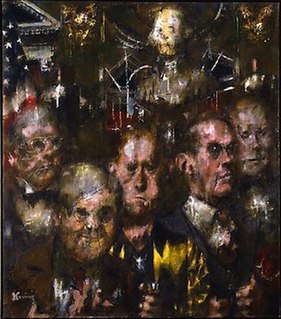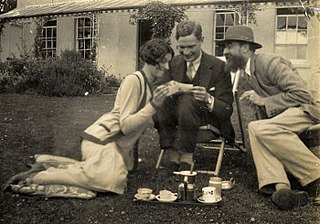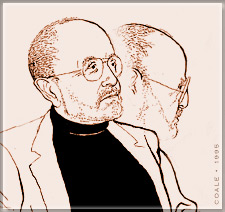A Quote by Robert Bringhurst
A lot of poems seem, in some sense, to pull the outside world into the interior. They aren't perhaps emotion recollected in tranquillity but perception recollected in interiority.
Quote Topics
Related Quotes
We must believe that "emotion recollected in tranquillity" is an inexact formula. For it is neither emotion, nor recollection, nor without distortion of meaning, tranquillity. It is a concentration, and a new thing resulting from the concentration of a very great number of experiences which to the practical and active person would not seem to be experiences at all; it is a concentration which does not happen consciously or of deliberation. These experiences are not "recollected" and they finally unite in an atmosphere which is "tranquil" only in that it is a passive attending upon the event.
I have said that poetry is the spontaneous overflow of powerful feelings: it takes its origin from emotion recollected in tranquillity: the emotion is contemplated till, by a species of reaction, the tranquillity gradually disappears, and an emotion, kindred to that which was before the subject of contemplation, is gradually produced, and does itself actually exist in the mind.
A writer works from the material she has, but it comes from the unconscious. Everything is stored up and one never knows what comes up to the surface at a given moment. A period of gestation is certainly needed, what Wordsworth called ‘emotion recollected in tranquility.’ You cannot write about an experience when you are living it, suffering it. You are too busy surviving to look at it objectively. At least I can’t.
I distrust summaries, any kind of gliding through time, any too great a claim that one is in control of what one recounts; I think someone who claims to understand but is obviously calk, someone who claims to write with emotion recollected in tranquility, is a fool and a liar. To understand is to tremble. To recollect is to re-enter and be riven. ... I admire the authority of being on one's knees in front of the event.
Writing fiction, for me, is a more indirect form of self-exploration than writing verse. When I'm working on a novel I'm moving characters around and I'm thinking about plot and there's a lot of other things going on at the level of structure and story. With a poem, a single idea or line or emotion can sometimes be enough - there's often a sense, in the best poems, of capturing a single instant. Perhaps poems differ from prose in the degree of solace they can offer - by speaking so personally, so directly, about shared experience. A few lines of poetry can provide comfort.



































